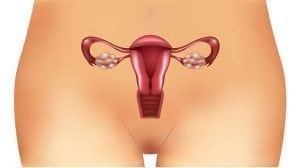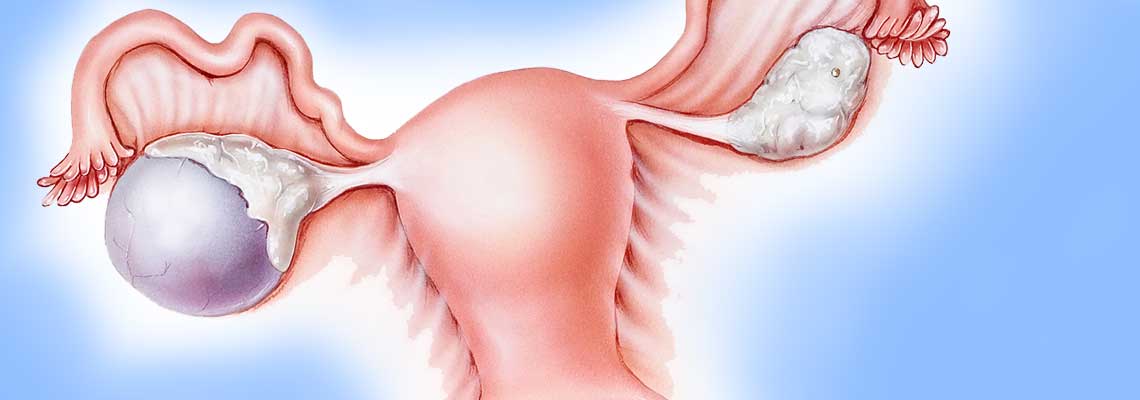When it comes to women’s fertility health a variety of factors can elicit concern. Women with ovarian cysts may wonder how these cysts might affect their chances of having a baby and their connection to overall fertility.
A diagnosis of ovarian cysts can be uncomfortable and scary, but can they also negatively affect your fertility? Here’s exactly what you need to think about and when you need to be worried when it comes to an ovarian cyst diagnosis.
What Are Ovarian Cysts?
 Before we go on, it’s important to understand exactly what a cyst is and what causes them. Ovarian cysts are solid growths or growths filled with liquid that grow on or in the ovaries. These cysts generally occur in women during their childbearing years, but luckily most cysts don’t cause too many problems. When cysts do get extremely large or pop however, it can be extremely painful and require immediate attention.
Before we go on, it’s important to understand exactly what a cyst is and what causes them. Ovarian cysts are solid growths or growths filled with liquid that grow on or in the ovaries. These cysts generally occur in women during their childbearing years, but luckily most cysts don’t cause too many problems. When cysts do get extremely large or pop however, it can be extremely painful and require immediate attention.
What Causes Ovarian Cysts?
There are a number of things that can cause ovarian cysts. Some of the most common causes include:
- hormonal imbalance, this can be natural imbalances caused from birth control or fertility drugs, or medical issues such as polycystic ovary syndrome (PCOS).
- diseases or infections
- abnormal cell growth
- pregnancy
- regular menstruation (most ovarian cysts that develop are referred to as functional cysts, and are a result of your menstrual cycle. Functional cysts are typically harmless, painless and often disappear naturally within two or three menstrual cycles.)
Symptoms
Most of the time, ovarian cysts don’t create any symptoms. In the case that they do, the biggest and most obvious symptom is pain. A woman may also experience abdominal pressure, bloating and/or vomiting. Women who experience severe pain in their pelvic region should go to the doctor immediately.
Treatments
Most of the time, ovarian cysts simply go away on their own. Birth control pills may be used to balance hormone levels and assist in preventing further development of cysts. In serious cases, the cyst may need to be removed through surgery. This may be necessary if the cyst is larger than five centimeters, is solid, or lasts longer than three months. There are two types of surgery removal: laparoscopic surgery and laparotomy. A laparoscopic surgery only requires a small incision and is not considered a major surgery. A laparotomy, however, may be necessary when the cyst is solid or cancerous.
Ovarian Cysts and Fertility

Functional cysts, cystadenomas, and dermoid cysts don’t generally cause fertility issues unless they are abnormally large.
Prevention
The biggest way to prevent cysts, or at least be diagnosed with them early for closer evaluation, is to get regular pelvic exams. Since this is the only way to detect them, it’s the first step in preventing them. If caught early, even cysts that could cause infertility can potentially be managed. See your doctor to ensure that you create the best plan of attack for you and your situation.
In some cases, an ovarian cyst can cause some fertility issues, but rest assured that most of the time, cysts are harmless and won’t cause a problem. However, if you’re trying to get pregnant, it’s a good idea to make sure that you don’t have cysts that develop as a cause of a condition that affects your fertility.




